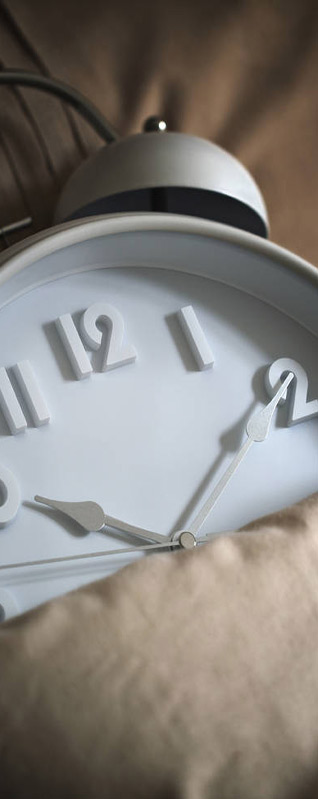People
Set Your Alarm to GO to Bed
SAMANTHA BOARDMAN
When I was training to become a psychiatrist, I rarely paid attention to my patient’s sleep habits. Unless there was a specific problem with sleep - either sleeping too much (which can indicate depression) or not requiring any sleep at all (a red flag for a manic phase of bipolar illness), how much they slept did not get much airtime.
I thought of sleep problems as a symptom of a mental illness, not a contributor to mental illness.
Since then I have had a wake-up call.
Study after study highlights the critical role of sleep in mental health. Lack of sleep can increase the risk of developing depression and has been shown to exacerbate anxiety and Attention Deficit Hyperactivity Disorder (“ADHD“).
It also negatively impacts memory, productivity and decision making. Relationships, a cornerstone of well-being, suffer too. After a sleepless night, people are more irritable and more likely to lash out at their partner.
Today, “how many hours do you sleep?” is one of the very first questions I ask during an initial consultation.
While there are many reasons people are chronically exhausted, smartphone use deserves a special mention. When I ask new patients if they sleep with their phone on or in their bed, they usually nod. When I ask if they have ever been awakened in the middle of the night by a phone call, text or email, they nod again. Few say they turn it off or put in silent mode when they finally turn off the light. They tell me it is the last thing they touch before they go to bed and the very first thing they touch in the morning.
Getting patients to make sleep a priority is challenging because unlike the many other scheduled parts of their day, bedtime happens when it happens.
To combat this nonchalant approach to hitting the sack, I ask them to put sleep on the schedule. More precisely, I suggest setting a notification one hour before bedtime to remind them to start powering down - their devices and themselves. It means no more email, no video games, no work, no bills and nothing stimulating or anxiety-provoking from then on.
Having a designated adjustment period allows their brain to transition from work mode into relaxation mode and prepares the body for sleep.
My son likes the expression “chillaxing time” (translation: chill out and relax).
Of course, removing the smartphone from the bedroom is essential. I suggest charging it in another room, but not the bathroom. I don’t want anyone checking their device if nature calls in the middle of the night.
You schedule workouts, doctors’ appointments, and important meetings because they are priorities in your day. Why not schedule sleep?
Setting an alarm to go to bed reinforces how important it is. Best of all, you will have more energy, be more productive at work and kinder and more patient with others.
Hopefully you will sleep so long and so well, it will eliminate the need to set an alarm to wake you up in the morning.
The author is a clinical instructor in Psychiatry and Assistant Attending Psychiatrist at Weill-Cornell Medical College in New York City, USA.
[Courtesy: The Wall Street Journal]
April 15, 2016



